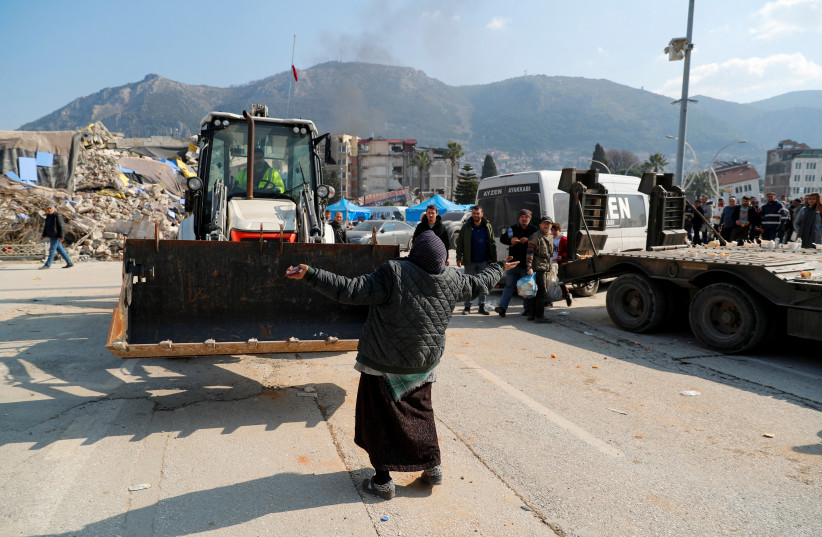Turks stepped over hundreds of bodies in stadiums and parking lots on Wednesday, carefully lifting blankets from their faces to try to identify dead relatives after a once-in-a-generation earthquake devastated the region.
Nada, a Syrian woman, and her Turkish husband asked a staff member how best to find their niece and aunt among the more than 100 bodies lined up in the parking lot of the Hatay Research Hospital near the southern city of Antakya.
"Check one by one," they were told.
"My wife doesn't speak Turkish, and I can't see very well," said the husband, who did not give a name. "We have to check all the faces. We need help."
Rows of body bags
Many of those killed in the tremor - which struck in the dead of night on Monday - were wrapped in body bags, blankets or tarpaulin, awaiting relatives or friends to find them and take them from the field hospital.

They were placed in tents or on the pavement outside the 1,130-bed hospital, built in 2016, which was too damaged by the earthquake to house them.
Some had tags with identifying information, some did not. Relatives who locate loved ones are issued a death certificate and burial permission from the on-site prosecutor, then they remove them in their own vehicles.
One woman who could not find her sister yelled: "My God, look how we are, we will be thankful if we find dead bodies of our people."
Erdem, 36, an emergency health worker who came from Izmir in the west, said a lack of morgues is one problem and coordinators are awaiting a refrigerated truck to store the bodies.
To the north in Kahramanmaras, near the earthquake epicenter, at least another 100 bodies were assembled on the floor of an athletics stadium, where residents sought to identify them.
One woman fell to her knees sobbing. Along the red-padded wall and underneath rows of empty spectator seating, three smaller bodies were wrapped in sheets on child-sized stretchers.
